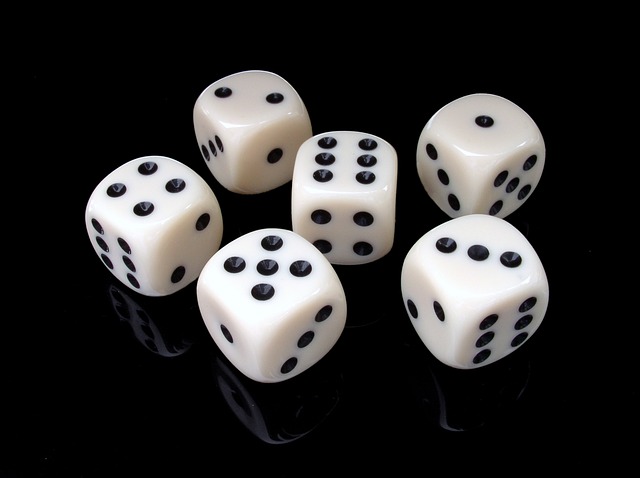Using randomness to enhance your life

Dice, by Wilhei on Pixabay.
Using sources of randomness to enhance your decision making
This is an assembled collection of tips on how and when to use dice to make your life better… which usually means easier.
I wrote recently on how useful dice can be in professional or serious gaming, but a recent prompt has encouraged me to start a list of when dice - and similar sources of randomness - can be useful in your day to day life too.
The sections are in no particular order.
Rolling for Initiative in meetings
Meetings can be dominated by those who speak loudest, think fastest, respond quickest, or are simply at the top of the hierarchy. One counter to this can be to start with the lowest ranking person’s opinion first, but that is mainly applicable in military contexts.
So, when it’s time for discussion, roll for initiative. This works in the same way that combat works in the game Dungeons & Dragons1. All of the characters involved in the combat will roll a dice, with the highest roll going first; so in a meeting, roll a D20 ( meaning a twenty sided die ), and the highest roll goes first. Or if you don’t have a D20 consider using something that everyone is more likely to have, pick a playing card instead? Not only is the order of statements more fairly distributed, but as with D&D combat, everyone gets a go. So you hear everyone’s ideas, and objections, leading to better decision making.
Mike Shema gives a nice description and context for this in his presentation from DevSecCon London 2018.
And yes, it might seem frivolous, or unprofessional - but how is “this is the way we’ve always done it?” working out for you right now?
Take one to twelve minutes
Take Your Time: Don’t rush to judgment or action before you have all the information you need. Take the time to carefully consider the situation and your options. Roll a D12 to see how many minutes you can take to consider the situation before making a decision. If you roll a 12, you have all the time in the world to contemplate the mysteries of the universe (or the best course of action for your character).
This idea, and the quoted text above, is from Rina Atienza’s Holy Hand Grenades newsletter.
I like the Take Five idea from anti-fraud campaigns, that it is best to take a moment and consider your next action. Not giving the victim time to think is a core technique in fraud…

The logo of the Take Five campaign.
… and arguably social media sites have the same approach to their users. So in general I like Atienza’s idea of using a 12 sided dice… or whatever dice you have to hand… to just pause, especially her idea that if you roll a 12 you have all the time in the world.
Doing something is better than doing nothing
I’m surrounded by task lists and responsibilities and ideas. In order to choose one to act on I have to consciously not choose another nineteen options, many of which can be as interesting or as urgent or as necessary as the one I choose.
Unconsidered advice on this subject can be “just prioritise” or “just focus”. And, pre-empting another default response, I’d argue that anyone who mentions the Eisenhower Matrix hasn’t thought about the issue of task prioritisation outside of their own environment; or hasn’t thought about the issue as much as you’d hope they would have for someone giving such authoritative advice.
In prioritising tasks it is possible to get stuck in the process of figuring out which task is the most urgent, and the most important; or get stuck in thinking about the more interesting ideas you’re trying to not think about, which means you need to write them down if you adhere to the idea of ubiquitous capture2.
To get off being stuck, assign everything on your list a number… or even give each list a number. Then roll a die, and immediately start on that task. Don’t give yourself time to consider if the die has made the right choice, start on that task, if only for a few minutes. This starts you doing something.
In summary
If any of these work for you please tell me… but tell others too, I think sharing these little techniques could help others. Also it’s useful to see what does or does not work for people.
